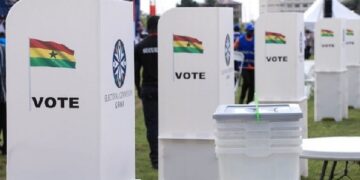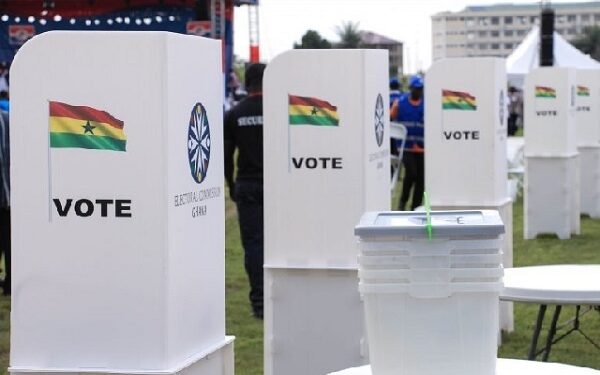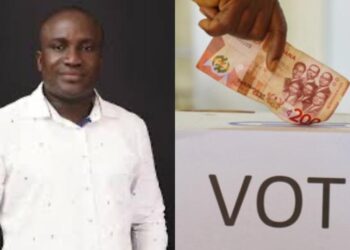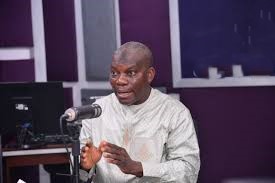Global Info Analytics has released a detailed regional analysis based on their recent polling data, comparing expected performance of presidential candidates to their parliamentary candidates across various regions.
The findings offer a fascinating look at how candidates are faring as we approach the actual 2024 elections.
Speaking to ABC NEWS GH on Thursday, November 28, 2024, a senior analyst with Global Info Analytics, Salam Nsia noted the below;
In the Ahafo Region, former President John Mahama leads his National Democratic Congress (NDC) MPs by 17%, while Vice President Dr. Mahamudu Bawumia outperforms his New Patriotic Party (NPP) MPs by 15%. This shows that Mahama is receiving stronger support than his MPs, while Bawumia is also benefitting from higher approval than his parliamentary counterparts.
However, the numbers take a sharp turn in Bono East, where Mahama trails his MPs by 11%, and Bawumia faces an even steeper decline, with a 26% deficit.
This indicates a region where voters may not fully align with either presidential candidate.
In contrast, the Ashanti Region, a traditional NPP stronghold, shows a mixed result: Mahama performs at par with his MPs, while Bawumia underperforms by 3% compared to his MPs, highlighting a slight disconnect with voters on the ground.
The Bono Region shows Mahama 6% ahead of his MPs, while Bawumia is 4% behind.
In the Central Region, Mahama leads by 2%, whereas Bawumia lags 6% behind his MPs, revealing a more favorable view of Mahama at the local level.
On the other hand, the Northern Region presents challenges for both candidates, with Mahama underperforming by 3% and Bawumia trailing by 7%.
In the North East Region, Mahama performs equally with his MPs, while Bawumia trails by 3%, reflecting a better alignment for Mahama among local voters.
Oti Region shows Mahama 4% behind his MPs, while Bawumia faces a steep 14% shortfall, indicating significant struggles for the NPP in this area.
Eastern Region shows Mahama 1% behind his MPs and Bawumia with a 5% deficit.
Similarly, in Greater Accra, Mahama is 2% behind his MPs, and Bawumia is 5% behind, demonstrating a regional challenge for both parties in urban constituencies.
This data highlights the varying levels of support for presidential candidates in relation to their local MPs. With just days remaining before the election, the performance of first-time voters is expected to play a crucial role in shaping the outcome.
However, concerns remain about whether these young voters will turn out to vote and if their preferences will translate into electoral support. As the election approaches, the regional dynamics could be pivotal in deciding the next president of Ghana.

































